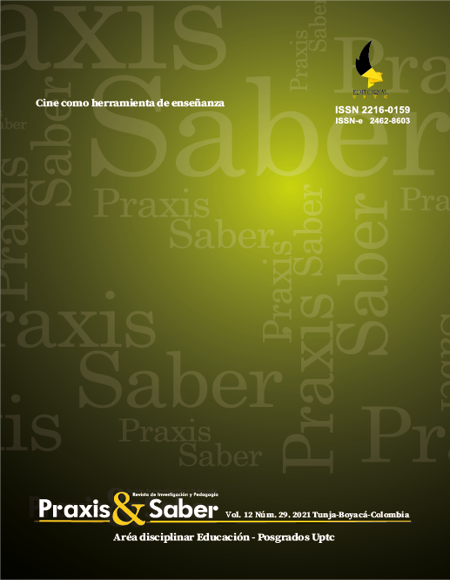Educational research: issues and multidisciplinary nature. Theoretical and philosophical reflections

Abstract
It is a text that is the result of reflection, its main objective is to investigate the problems of educational research and its multidisciplinary nature. At first, it is assumed that: on the one hand, the problem of educational research is related to the conceptual and theoretical-methodological sense, which arises from thought and criticism of questions about education; on the other hand, the prefix "multi" not only refers to abundance and diversity, but rather refers to intersections, detours, eruptions and articulations of disciplines. In a second moment, educational research is reviewed from the disciplinarization of knowledge, as a combat between knowledge so typical of modernity. The theoretical-methodological approach that is followed is hermeneutics. It is considered that all interpretation has to protect itself against the arbitrariness of the occurrences and should rather orient its gaze to the "thing itself", which in this case this interpretive gaze is directed to the understanding of "the problems of educational research and its multidisciplinary character"
Keywords
educational research, research methodology, multidisciplinarity, pedagogical knowledge, philosophy of education, training of researchers, research problems
References
Apostel, L., Berger, G., Briggs, A., Michaud, G. (1979). Interdisciplinariedad. Problemas de la enseñanza y de la investigación en las universidades. ANUIES.
Claparede, E. (1961). Psicología del niño y pedagogía experimental. Continental.
Deleuze, G. (1998). Nietzsche y la filosofía. Anagrama.
Foucault, M. (2003). Sobre la ilustración. Tecnos.
Foucault, M. (2014). Defender la sociedad. FCE.
Foucault, M. (2016). Nacimiento de la biopolítica. FCE.
Gadamer, H. (2007). Verdad y Método I. Sígueme.
Garfinkel, H. (2006). Estudios en etnometodología. Anthropos.
Heidegger, M. (1994). La pregunta por la técnica. Ediciones del Serbal.
Husserl, E. (1998). Invitación a la fenomenología. Paidós.
Jiménez, M., & Valle, A. (2018). Sujetos y poderes universitarios. Conflicto, porvenir y autoafirmación de la Universidad. En M. Jiménez, & A. Valle, Sociología y pedagogía. Defender la universidad (pp. 11-46). UNAM
Jiménez, M. (2012). Investigación educativa. Huellas metodológicas. SADE.
Kant, I. (2004). El conflicto de las facultades. Losada.
Landsheere, G. (1996). La investigación educativa en el mundo. FCE.
Latapí, P. (2008). ¿Recuperar la esperanza? La investigación educativa entre pasado y futuro. Revista Mexicana de Investigación Educativa, 13(36), 283-297.
Le Goff, J. (1990). Los intelectuales en la Edad Media. Gedisa.
López, M., Sañudo, L., & Maggi, R. (Coords.) (2013). Investigaciones sobre la investigación educativa. 2002-2011. COMIE, ANUIES.
Mier, R. (2012). Diálogo pedagógico. Reconocimiento y creación de sentido. En A. Valle (Ed.), Alteridad entre creación y formación. Reflexiones en torno a la cultura y la educación(pp. 19-32). UNAM.
Nietzsche, F. (1997). Genealogía de la moral. Un escrito polémico. Alianza.Palmade, G. (1979). Interdisciplinariedad e ideologías. Narcea.
Pedroza, R. (2006). La interdisciplinariedad en la universidad. Revista Tiempo de Educar, 7(13), 69-98.
Pontón, C. (2011). Configuraciones conceptuales e históricas del campo pedagógico y educativo en México. UNAM.
Torres, J. (1996). Globalización e interdisciplinariedad: el currículum integrado. Morata.
Valle, A. (2015). Formas de hablar entre filosofía y educación. En C. Pontón, & A. Valle (Coords.), Filosofía y educación: vínculos y desarticulaciones (pp. 19-39). UNAM.
Valle, A., & Jiménez, M. (2017). Pragmatismo y educación. Aproximaciones a la noción de método en Foucault. En Ó. Pulido, M. Suárez, & Ó. Espinel (Comps.), Pensar de otro modo. Herramientas filosóficas para investigar en educación (pp. 29-49). Editorial UPTC.
